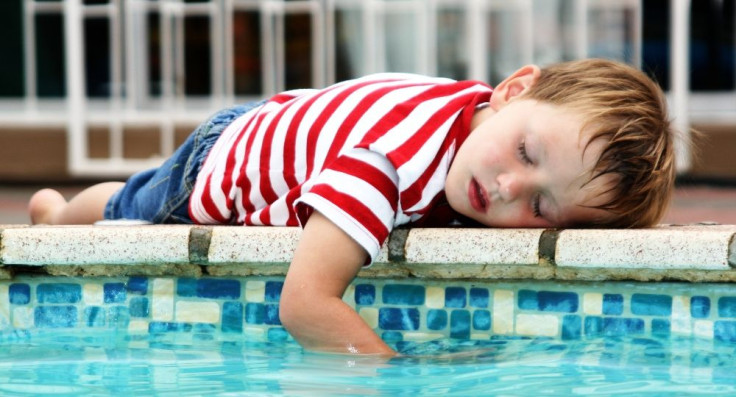Children Prescribed ADHD Medication Have Trouble Sleeping; Here's Why That's A Bigger Problem Than It Sounds

The negative health consequences associated with sleep deprivation are innumerable, so it’s unfortunate that a lot of medications result in insomnia, like medications used to treat attention deficit hyperactivity disorder (ADHD), which already has its own impact on sleep. A recent study conducted by researchers from the University of Nebraska-Lincoln has found that ADHD medications, like Ritalin and Adderall, can result in sleep problems among the children who take them.
"We would recommend that pediatricians frequently monitor children with ADHD who are prescribed stimulants for potential adverse effects on sleep," said Katie Kidwell, a psychology doctoral student and the study's lead author, in a statement.
Kidwell and her colleagues screened close to 10,000 articles and reviewed 167 full tests before deciding on nine studies to use in their meta-analysis. Instead of relying on parental reporting, the research team focused on objective studies that were measured via clinical sleep studies or wearable monitors worn at home. Although both methylphenidate medications like Ritalin and amphetamine medications like Adderall were assessed by the research team, they did not identify differences between the two.
Results showed that both methylphenidate and amphetamine ADHD medications led to sleep problems among children, even though they were unable to determine if varying dosage amounts led to this finding. They did, however, find that more frequents doses made it harder for kids to fall asleep at night. The longer these children continued to take these medications, the longer it took for sleep problems to dissipate with them never really going away.
"One reason we did the study is that researchers have hypothesized different effects, and there are some conflicting findings in the literature," said Timothy Nelson, an associate professor of psychology involved in the study. "This is when a meta-analysis is most useful. By aggregating and summarizing previous research in a rigorous and statistical way, we can identify the main findings that we see across all these studies. It's essentially a study of studies."
Sleep deprivation is a problem no matter who you are, but it’s especially damaging among children with ADHD. According to the National Sleep Foundation, treating sleep problems is often regarded as suitable solution for certain ADHD symptoms. Unfortunately, if the medication used to treat ADHD is causing problems with sleep among children, then they have a higher risk for continuing with sleep complications as they get older.
"Sleep impairment is related to many cognitive, emotional, and behavioral consequences, such as inattention, irritability, and defiance," Kidwell explained. "Sleep adverse effects could undermine the benefits of stimulant medications in some cases. Pediatricians should carefully consider dosage amounts, standard versus extended release, and dosage frequencies to minimize sleep problems while effectively treating ADHD symptoms."
Unfortunately for children with ADHD, they don’t have a lot of options when it comes to treatment. While the researchers did recommend certain behavioral changes for reducing the negative effects of the condition, including parental training, changes to classroom procedures, and homework assignments, around 3.5 million ADHD patients are prescribed stimulant medication, making it the most common form of treatment.
"We're not saying don't use stimulant medications to treat ADHD," Nelson said. "They are well tolerated in general and there is evidence for their effectiveness. But physicians need to weigh the pros and cons in any medication decision, and considering the potential for disrupted sleep should be part of that cost-benefit analysis with stimulants."
ADHD medications are currently categorized as Schedule II narcotics, putting them in the same class as OxyContin and morphine. Back in 2013, the American Academy of Neurology published a position paper asking doctors to stop prescribing these medications to students who need help concentrating on schoolwork. These so-called “neuroenhancements” have been tied to various health side effects, such as insomnia, high blood pressure, irregular heartbeat, and even seizures.
Source: Kidwell K, et al. Stimulant Medications and Sleep for Youth with ADHD: A Meta-Analysis Pediatrics. 2015.



























